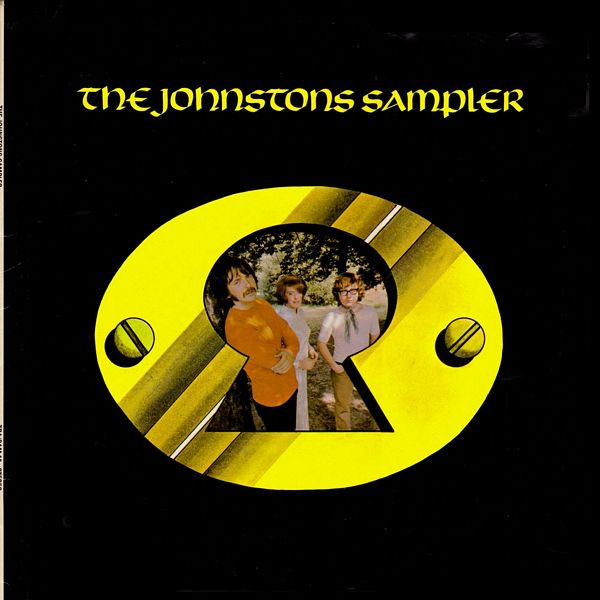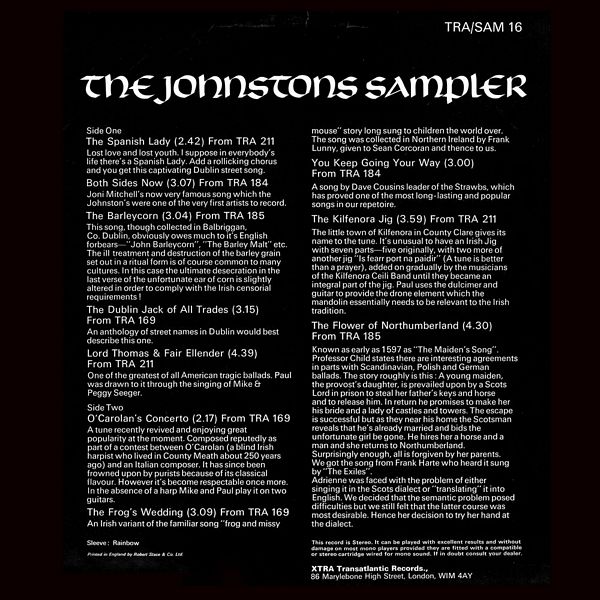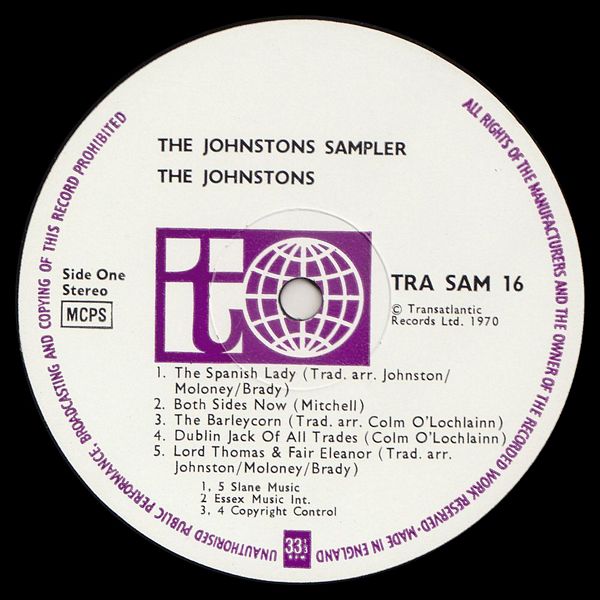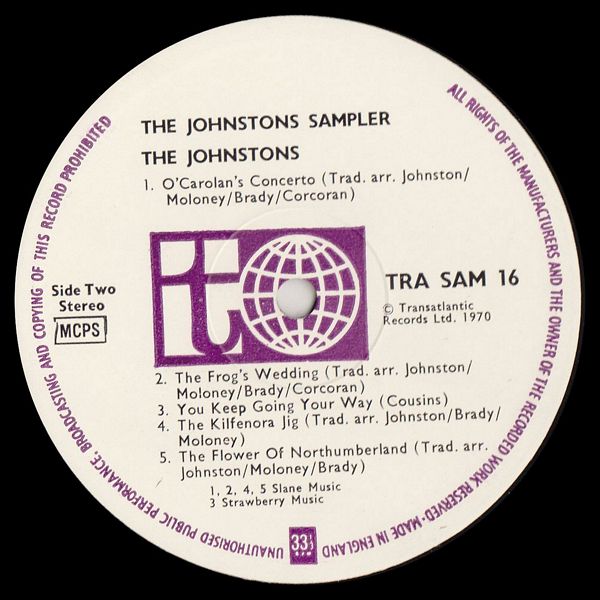

 |


 |
Sleeve Notes
The Spanish Lady
Lost love and lost youth. I suppose in everybody's life there's a Spanish Lady. Add a rollicking chorus and you get this captivating Dublin street song.
Both Sides Now
Joni Mitchell's now very famous song which the Johnston's were one of the very first artists to record.
The Barleycorn
This song, though collected in Baibriggan, Co. Dublin, obviously owes much to it's English forbears — "John Barleycorn", "The Barley Malt" etc. The ill treatment and destruction of the barley grain set out in a ritual form is of course common to many cultures. In this case the ultimate desecration in the last verse of the unfortunate ear of corn is slightly altered in order to comply with the Irish censorial requirements!
The Dublin Jack of All Trades
An anthology of street names in Dublin would best describe this one.
Lord Thomas & Fair Ellender
One of the greatest of all American tragic ballads. Paul was drawn to it through the singing of Mike & Peggy Seeger.
O'Carolan's Concerto
A tune recently revived and enjoying great popularity at the moment. Composed reputedly as part of a contest between O'Carolan (a blind Irish harpist who lived in County Meath about 250 years ago) and an Italian composer. It has since been frowned upon by purists because of its classical flavour. However it's become respectable once more. In the absence of a harp Mike and Paul play it on two guitars.
The Frog's Wedding
An Irish variant of the familiar song "frog and missy mouse" story long sung to children the world over. The song was collected in Northern Ireland by Frank Lunny, given to Seán Corcoran and thence to us.
You Keep Going Your Way
A song by Dave Cousins leader of the Strawbs, which has proved one of the most long-lasting and popular songs in our repetoire.
The Kilfenora Jig
The little town of Kilfenora in County Clare gives its name to the tune. It's unusual to have an Irish Jig with seven parts-five originally, with two more of another jig "Is fearr port na paidir" (A tune is better than a prayer), added on gradually by the musicians of the Kilfenora Ceili Band until they became an integral part of the jig. Paul uses the dulcimer and guitar to provide the drone element which the mandolin essentially needs to be relevant to the Irish tradition.
The Flower of Northumberland
Known as early as 1597 as "The Maiden's Song". Professor Child states there are interesting agreements in parts with Scandinavian, Polish and German ballads. The story roughly is this: A young maiden, the provost's daughter, is prevailed upon by a Scots Lord in prison to steal her father's keys and horse and to release him. In return he promises to make her his bride and a lady of castles and towers. The escape is successful but as they near his home the Scotsman reveals that he's already married and bids the unfortunate girl be gone. He hires her a horse and a man and she returns to Northumberland.
Surprisingly enough, all is forgiven by her parents. We got the song from Frank Harte who heard it sung by "The Exiles".
Adrienne was faced with the problem of either singing it in the Scots dialect or "translating" it into English. We decided that the semantic problem posed difficulties but we still felt that the latter course was most desirable. Hence her decision to try her hand at the dialect.